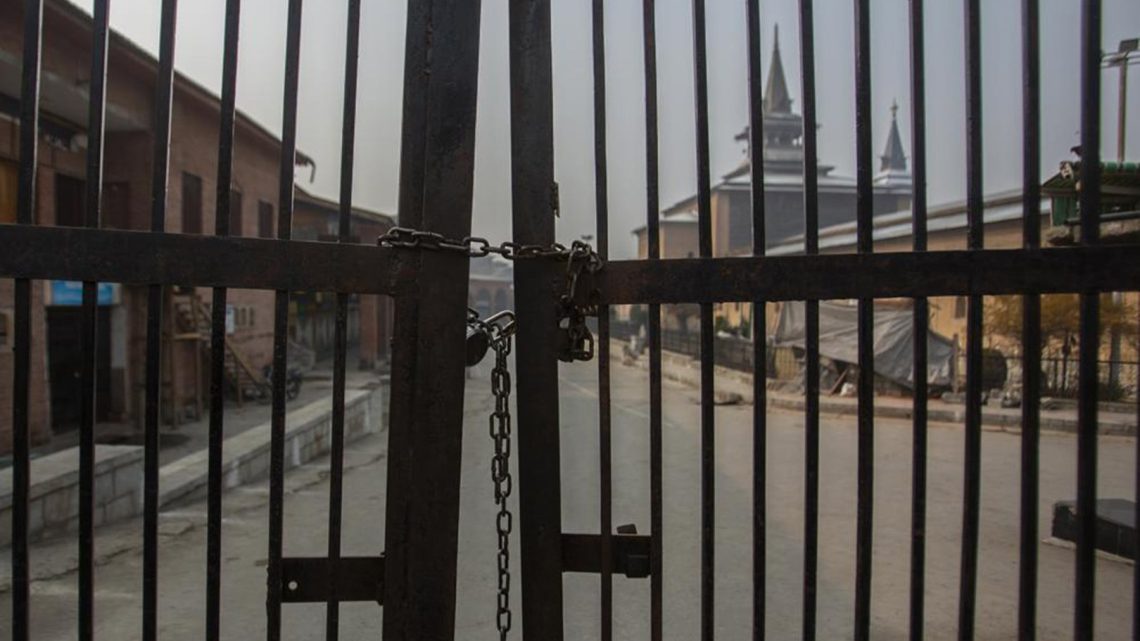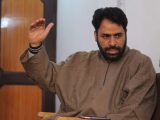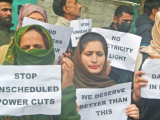
Friday Prayers Banned at Jamia Masjid in Srinagar for the Seventh Consecutive Week
November 24, 2023In Srinagar, the prohibition of Friday prayers at Jamia Masjid has persisted for the seventh consecutive week, and the prominent All Parties Hurriyat Conference (APHC) leader, Mirwaiz Umar Farooq, remains confined to his residence in the city of Srinagar in the Indian illegally occupied region of Jammu and Kashmir.
In this regard, Anjuman Auqaf of the Jamia Masjid in Srinagar issued a statement revealing that the police authorities prevented Anjuman from unlocking the mosque gates for the Juma prayers.
For seven consecutive weeks, the Anjuman Auqaf of the Jamia Masjid has lamented the ongoing restriction on Friday prayers at the historic mosque in Srinagar. The authorities’ refusal to permit congregational prayers raises concerns about the infringement on religious rights and the freedom to practice one’s faith.
Simultaneously, the Anjuman Auqaf strongly criticized the continuous and unlawful house arrest of its leader, Mirwaiz Umar Farooq, characterizing it as an expression of frustration by the occupation authorities. The persistent confinement of a prominent religious and political figure such as Mirwaiz Umar Farooq raises questions about the state of civil liberties and human rights in the region.
The denial of the fundamental right to Friday prayers at Jamia Masjid and the house arrest of Mirwaiz Umar Farooq underscore the challenges faced by the residents of the Indian illegally occupied Jammu and Kashmir. The restriction on religious practices not only impacts the spiritual well-being of the local population but also raises concerns about the broader issue of freedom of expression and assembly.
The Anjuman Auqaf’s condemnation of Mirwaiz Umar Farooq’s house detention highlights the organization’s resistance against what it perceives as arbitrary and unjust measures taken by the occupation authorities. The term “frustration” used by the Anjuman suggests a sense of discontent and opposition to the actions of the authorities, emphasizing the perceived illegitimacy of such restrictions.
As the situation unfolds, it remains essential to monitor developments in the region and assess the broader implications of these restrictions on religious practices and individual freedoms. The continued denial of Friday prayers at Jamia Masjid and the confinement of Mirwaiz Umar Farooq serve as reminders of the complex and sensitive issues surrounding the region of Jammu and Kashmir.

